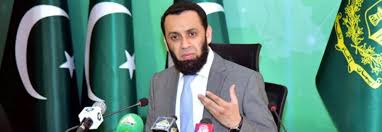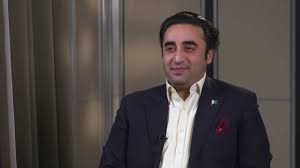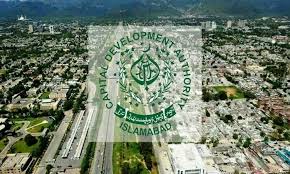Pakistan’s foreign policy on successful trajectory: Attaullah

New York: Minister for Information and Broadcasting Attaullah Tarar has said that Pakistan’s foreign policy is on a successful trajectory.
Speaking to the media in New York, he noted that coordination and cooperation with friendly countries have increased.
The Information Minister emphasized that Pakistan has great potential for investment and aims to convey this message to the world. He said the economy is heading in the right direction with inflation coming down to single digit.
Responding to a question, Attaullah Tarar said Prime Minister Shehbaz Sharif has raised Palestine issue at international forums. He emphasized that peace in Palestine is important for peace in the world. He reiterated Pakistan’s demand for a ceasefire in Gaza and for holding Israel accountable for its crimes.
He pointed out that Pakistan has sent humanitarian assistance to the Palestinian people.
Federal Minister for Information, Broadcasting, National Heritage and Culture Attaullah Tarar said on Tuesday that durable peace in the world was not possible without permanent resolution of Palestine and Kashmir issues.
Talking to media outside the United Nations General Assembly, he said that Prime Minister Shehbaz Sharif had raised both issues at all international fora.
He said on Palestine issue, the PM had stated that war crimes were being committed in the area, genocide of armless
Palestinians was being committed and the world should take notice and bring the perpetrator Israel to justice.
He said the Prime Minister had also made clear that Pakistan wanted restoration of pre-1967 borders in which Jerusalem should be the capital of Palestine.
” We want immediate ceasefire in Gaza and accountability of the aggressor Israel for war crimes and genocide being committed in Palestine”, he remarked.
Tarar said that Pakistan had dispatched humanitarian aid through ships and C130s. Moreover Pakistan had offered to give admission to Palestinian medical students in Pakistani institutions, so that they could complete their education without any hindrance.
He said the Kashmir issue would figure in the Prime Minister’s engagements in the United Nations.
Besides , he said climate change was a major issue for Pakistan which contributed only 2 per cent of the gas emissions but had to bear the brunt of adverse effects of the climate change.
He said the UN secretary general had himself visited Pakistan and himself saw the impact of climate change in Pakistan due to heavy floods.
He further said that Pakistan had also badly suffered in the war against terrorism and it was still suffering in this war launched by the western powers.
The minister said that after 2018 Pakistan was isolated on foreign policy affairs as Pakistan’s friends both in East and West were unhappy.
He said now the warmth in relations with all friendly countries was restored and cooperation was showing serge.
He said that talks with the International Monetary Fund had been concluded and final endorsement was due shortly.
He said there was also good news about Pakistan’s economy and the world should come and invest in Pakistan to take advantage of its huge potential.
He said that Bloomberg had termed the Pakistan stock market as an emerging stock market and Moody’s and Fitch had upgraded its rating.
He said there was good news that inflation had fallen to 9.6 per cent whereas exports have increased by 14 percent. Information technology exports have touched the 3.1 billion mark and remittances have also shown an upward trend.
He said that the entire world could share in the economic revival of Pakistan.
To a question, he said that during the PM’s visit, meetings will be held with doctors , bankers and representatives from other walks of life.
Elaborating on Pakistan’s isolation in the past, he said that during the PTI rule on the one hand China-Pakistan Economic Corridor was shut down and on the other the US was accused of toppling its government and even friendly countries in the Middle East were not happy with the foreign policy of the then regime.





